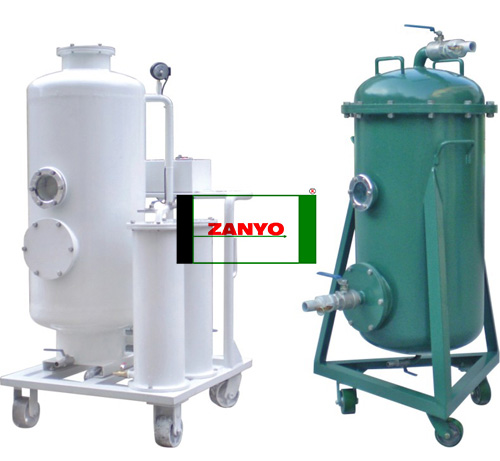The Role of a Transformer Oil Regeneration Plant in Modern Industry
The Role of a Transformer Oil Regeneration Plant in Modern Industry
Blog Article
Why Regenerated Transformer Oil Is Vital for Reliable Power Solutions
The essential function of regenerated transformer oil in ensuring the dependability of power systems can not be overstated. By recovering the oil's intrinsic chemical and physical buildings, the regeneration process significantly boosts its dielectric strength and thermal performance.
Importance of Transformer Oil
Transformer oil plays an important duty in the effective operation of electric transformers. By providing thermal conductivity, transformer oil dissipates heat generated throughout electric procedure, which is vital for maintaining optimum operating temperatures and lengthening the life-span of the equipment.
Furthermore, transformer oil functions as a barrier against wetness and air, which can result in oxidation and deterioration of transformer materials. The existence of pollutants in the oil can dramatically harm its shielding residential or commercial properties, causing functional ineffectiveness and prospective equipment failure. Routine tracking and maintenance of transformer oil are therefore vital to guaranteeing the continued effectiveness of transformers.
The quality and make-up of transformer oil are paramount, as they directly impact the reliability and efficiency of the electric systems in which they operate. Understanding the importance of transformer oil is crucial for sectors and energies reliant on robust power facilities, highlighting the demand for reliable management and regrowth processes to maintain oil integrity with time.
Benefits of Regeneration Refine

In addition, the regrowth procedure mitigates the deterioration of oil, which can bring about enhanced oxidation and acid formation. This not only boosts the integrity of the oil yet likewise lowers the threat of transformer failures as a result of insulation malfunction. The boosted top quality of regenerated oil allows transformers to operate at ideal degrees, eventually bring about boosted energy efficiency and decreased functional expenses.
In addition, the regrowth procedure adds to preserving the general wellness of the power system. Transformers can run much longer without the need for oil replacement, hence decreasing downtime and upkeep initiatives. In recap, the regrowth process supplies considerable benefits by enhancing the durability and efficiency of transformer oil, making sure that power systems run dependably and successfully with time.
Environmental Impact and Sustainability
The regeneration procedure of transformer oil dramatically alleviates environmental problems linked with oil disposal and waste administration. Typical disposal approaches for utilized transformer oil pose considerable risks, consisting of dirt contamination and home water contamination. By regenerating oil, these risks are noticeably decreased, as the process reuses existing sources as opposed to contributing to waste buildup.
In addition, regenerated transformer oil can be recycled in different applications, which promotes a round economic situation. This not only reduces the demand for virgin oil removal-- a process that can be ecologically harmful-- but additionally saves natural deposits. The regrowth process itself employs advanced filtering and purification techniques that get rid of unsafe impurities, guaranteeing that the last product surpasses or meets industry standards for efficiency and safety and security.

Enhancing Transformer Performance
Significant renovations in transformer performance can be accomplished via the use of regenerated resource transformer oil. This oil, produced via sophisticated filtration processes, considerably improves the electrical insulation properties of transformers. By eliminating pollutants and impurities that normally compromise performance, regrowed oil makes sure premium dielectric toughness, reducing the threat of electric failings.
Additionally, regenerated transformer oil shows improved thermal conductivity, which promotes effective heat dissipation. This characteristic is important for keeping optimum operating temperature levels, thus extending the life expectancy of transformers and decreasing the chance of overheating - Transformer Oil Regeneration Process. Enhanced thermal administration additionally contributes to the overall reliability of power systems
Furthermore, the chemical stability of regrowed oil protects against the development of destructive acids and sludge, which can negatively impact transformer components. By keeping a cleaner inner setting, this oil lessens maintenance requirements and extends solution periods.
Cost-Effectiveness and Effectiveness
In regards to cost-effectiveness and efficiency, regenerated transformer oil offers a compelling alternative to conventional oils. The regrowth process not only eliminates pollutants however also restores the oil's initial residential properties, prolonging its functional life-span. This durability translates into decreased regularity of oil replacement, thereby decreasing functional costs over time.
Moreover, making use of regrowed oil can considerably decrease power losses associated with ineffective shielding fluids. Its superior dielectric properties ensure ideal performance, improving the integrity of power systems. Consequently, services take advantage of lower upkeep prices and decreased downtime, fostering a much more reliable operational atmosphere.

Verdict
To conclude, the regrowth of transformer oil plays a vital duty in guaranteeing the dependability and efficiency of power systems. By recovering the essential chemical and physical buildings of the oil, this process boosts dielectric stamina and thermal conductivity, eventually lowering the risk of insulation break down. Furthermore, the ecological benefits connected with recycling sources add to sustainability efforts, while cost-effectiveness and boosted efficiency emphasize the necessity of utilizing regenerated transformer oil in modern electrical facilities.
Transformer oil plays a vital function in the effective operation of electric transformers. Regular tracking and upkeep of transformer oil are as a result important to making certain the continued performance of transformers.
The regrowth process of transformer oil considerably reduces environmental worries connected with oil disposal and waste monitoring. By prolonging the lifecycle of transformer oil, the energy and sources usually consumed in creating brand-new oil are substantially lowered.Considerable read here enhancements in transformer performance can be accomplished via the usage of regenerated transformer oil.
Report this page